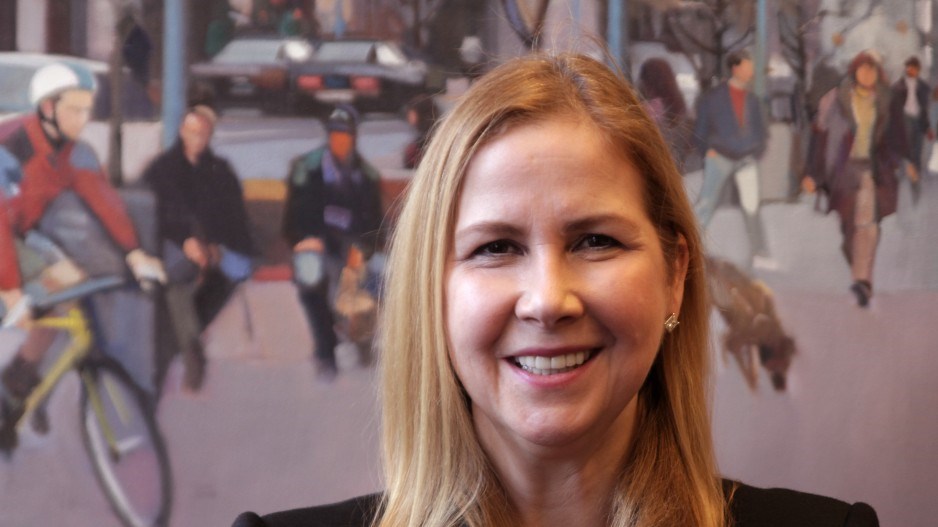Carolyn Cross, who has been known to respond to business emails at 1 a.m., was recently up until 3 a.m. helping her 14-year-old son with a school project that he got behind on.
When it comes to balancing work and family life, “you just have to do what you do,” she said.
“You prioritize and then wake up a little bit later and you make it up on the tail end, and flexibility is what’s needed.”
Fortunately, as CEO of Ondine Biomedical Inc., she is in a position to give herself some flexibility.
Other women may not be so lucky. Some organizations don’t offer the same kind of willingness to adapt schedules to individual needs, which is just one of the reasons she believes women are still so under-represented at senior executive levels.
As she points out, 17% of small businesses are owned by women, and one-third are run by women.
And yet only 17% of corporate officers are women, only 13% of directors in the top companies are women, and only 6% of women end up at the C-suite level.
“And 40% of companies don’t have any representation at all,” Cross added.
Cross believes women need a stronger voice in business and government, which explains why she is so heavily involved in organizations that support women in business.
“I think it’s important because women have a different perspective, and it has been long proven that when you add diversity to the decision-making, you get better outcomes,” she said.
Cross is the founder of the Women’s Economic Business Advisory Council and is a founding member of the EY Global Women in Business Advisory Council.
She is also a member of the Vancouver chapter of the Women Presidents’ Organization, which provides peer support to women in business.
In her efforts to help other women in business, Cross brings a sense of urgency that comes from a keen awareness of the shortness of life – something that was violently underscored in 2011 when she was in a small plane crash in Richmond that claimed the life of the pilot and co-pilot.
She sustained head trauma and broken ribs, teeth and pelvis. Several months after the accident, she began to suffer from post-traumatic stress disorder and depression.
“After the plane crash, I felt really overwhelmed with the sense that I wasn’t going to be around for very long – one of the symptoms of post-traumatic stress. It prompted me to look at what was important to me and what my passions were to do a better job with them.”
With a husband and three children – ages 12, 14 and 18 – her family is high on that list of priorities. But so is supporting women in business through the organizations she is involved in.
As for her own business, Cross is passionate about the germ-killing technology that Ondine has been trying to commercialize.
Called photodisinfection, the technique uses laser light, not drugs, to kill pathogens. Given the growing concerns about drug-resistant bacteria, Cross believes Ondine’s MRSAid – used to kill bacteria and other pathogens in the nasal and throat passageways of patients before surgery – could be an important new tool in fighting drug-resistant micro-organisms.
Cross can personally testify as to the effectiveness of the technology. When she was being prepped for surgery at Vancouver General Hospital (VGH) after her plane accident, Ondine’s device was used on her because VGH was the first hospital to use MRSAid in clinical trials. UBC Hospital is also now using it.
Ondine is also now doing clinical trials with another device, called Sinuwave, which treats chronic sinusitis. Ondine employs 17 people and has raised $70 million in venture capital and public market financing.




